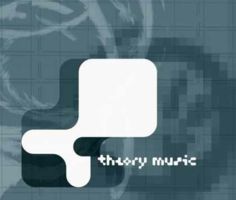Theory Music
Vienna/Februar 2000

a CD by Bernhard Loibner
available for 14,50.- EURO
CLICK to order
PLAY
|
Theory Music "Theory Music" is a collection of sound works by Bernhard Loibner. "Theory Music" is comprised of sonic treatments of texts spoken by their authors, and of found voice material from radio and other sources. The voices were chosen first, the musical compositions were built around this material. I used various strategies to make the speech musical. The title describes what this project is about--that is the fusion of 'theory' and 'music'. In the tracks of this CD, these normally discrete entities work with, within and against each other. After more than 4 years of work with these voices and sounds it has become impossible for me to distinguish between the 'theory' and the 'music' within these tracks. This blurring of normally separate domains was one of the goals of the project. The placement of the word 'theory' in front of 'music' should be read as a sign that music, despite its abstract nature, can and does reflect certain political, social or economic issues. This is certainly the case for electronic or digital music, which deals necessarily and elastically with the frenzy of constantly evolving hardware and software. During the course of this project's development, it has become increasingly obvious that the emerging, maturing techno-culture has defined itself as an ideology-free zone. "Theory Music" exists in the divide between a fun-loving culture (as understood by those who live it) and the reflections of a somewhat distant intellectual community that writes volumes of essays attempting to interpret this cultural phenomenon. My own work oscillates between these poles. I am fascinated by the beats of the techno-culture but feel the need for observation and analysis of this culture's substance. There is no better demonstration of the rapid, massive change caused by new technologies in our increasingly disintegrated societies. This music, my choice of sonic modifications--the techniques I use to manipulate the source material--delivers thoughts about this culture. Consumption seems to be the common denominator in this disjointed world. This is certainly true for a techno-culture being commercialized at breath-taking speed. What began as just an expression of a 'moderately' different way of life has quickly ended up being the marching orders for various techno 'parades'. The ideology-free zone gets stuffed with products which ideally exist within a certain "semantic fuzziness between its slogan and the projected image" (1), amplified by a marketing cult which leads to a "quasi religious devotion to certain products or product groups" (2). Jaques Attali shows (3) that tracing the social and economic status of music through history enables us to observe general changes that develop in other parts of society later on. Mass production; the decreasing significance of a product itself in favor of distribution and marketing; the transformation of counter- and protest culture into mass culture; the metamorphosis of cultural diversity into easy-to-consume uniformity: the music and entertainment industry has shown us the way... In the emerging digital economy, music is again the avant garde. Since the introduction of the Compact Disk in the early 1980's, music has been more purely digital than any other commodity. It is no surprise that music is the test pilot for the new forms of on-line distribution and consumption. "Theory Music" is not designed to render a consistent, analytical picture of these complex socio-economic changes. It is a stack of descriptions from different worlds, writing and speaking, and sound and music. It is a dialogue between modes of perception and nodes of communication. In this era of mediated culture the contemporary artist has an essential role to play, as an observer, commentator and transformer. It is always important to pay attention to how artists respond to new technologies, to listen to what they say when they deal with change, to watch how they sometimes retreat into traditional territory, and how they claim new media as their field of operation. This is what "Theory Music" is about. Bernhard Loibner (1) Robert Adrian, The Real Thing, in "Medienkultur", Memesis - Die Zukunft der Evolution, Ars Electronica 1996(2) Norbert Bolz, Die Sinngesellschaft, Econ Verlag (3) Jacques Attali, Noise - The Political Economy of Music, University of Minnesota Press |
